A controversial 2010 paper claiming to have discovered bacteria substituting arsenic for phosphorus in its DNA has been retracted by the journal Science. While fraud is not suspected, the move was warranted 15 years after its publication due to changes in retraction criteria, says Science’s editor-in-chief, H Holden Thorp.

The study, funded by Nasa, made remarkable claims about the bacterium GFAJ-1, found in the saline and arsenic-filled Mono Lake in California. When the strain was cultured without phosphorus and in high arsenic concentrations, the team detected arsenate that it believed was associated with the bacterium’s DNA.
The findings were met with scepticism, and only published in print in 2011, alongside eight technical comments. In 2012, two papers unsuccessfully attempted to replicate the results, concluding that although the microbe could tolerate arsenic, it was not incorporated into its DNA.
Critics believed the findings were the result of arsenic contamination of the analysed nucleic acids, due to insufficient purification. In the retraction, published on 24 July, Thorp states that despite the early rebuttals, at that time the journal reserved retractions for cases of deliberate data manipulation. He says that since then, ‘standards for retracting papers have expanded’ and a retraction is justified ‘if the editors determine that a paper’s reported experiments do not support its key conclusions’. The decision was based on guidelines from the Committee on Publication Ethics (Cope).
Authors protest
Ten of the papers’ co-authors signed a letter stating they stood by their findings and accused Science of exceeding its authority. Speaking to Science news, co-author Ariel Anbar, an isotope geochemist at Arizona State University, said ‘the real dispute is about how the data is being interpreted, which should not be grounds for retraction but is legitimate scientific debate.
Nicholas Williams, an expert in phosphate ester hydrolysis at the University of Sheffield, UK, says much blame lies with the journal itself and poor refereeing that ignored both chemical principles and likely experimental flaws. ‘Rewriting the way DNA could be formed at a fundamental level was a huge overstatement,’ he says.
University of Leeds chemist, Terence Kee, who also has an interest in astrobiology, says it may technically be possible for a DNA structure to form with arsenic, even though it’s larger than phosphorus. ‘Arsenic as an element is in the same group as phosphorus, it has the same kind of chemical structure and chemical bonding,’ he notes. But it forms much weaker bonds to oxygen, compared with phosphorus, so arsenic-based DNA would be less stable and prone to degradation. It’s unclear if such a structure would be able to function in the same way as DNA, he adds.
In 2012, Jerzy Leszczynski and colleagues from Jackson State University in the US ran a computational study to look at the structural feasibility of such a polymer. They found that base-stacking could increase the resistance of arsenate to hydrolysis, but it was still less stable than typical DNA. Leszczynski says there may be some specific conditions that would allow nature to utilise such a compound. ‘It is quite interesting and possible, even if the published experiments might not provide a final answer.’
By 2012, several publications suggested alternative explanations for how these bacteria grow in low-phosphorus and high-arsenic conditions, which would be deadly to most organisms. Dan Tawfik from the Weizmann Institute of Science in Israel examined a protein that mediates phosphate uptake in the Mono Lake GFAJ-1 strain and found it was 10-times more sensitive to phosphorus than arsenic, compared with other bacteria. Another study suggested that arsenate induces ribosome degradation, which provides the missing source of phosphate, with a small number of arsenate-tolerant cells able to survive.
Still controversial after all this time
Several researchers contacted still felt the retraction was controversial after 15 years. ‘Given nothing new [has] arisen, why forcibly retract the article now?’ says Williams. ‘I think that the world of science is not being misled … this retraction seems a needless step.’
Thorp admitted that the retraction was precipitated by the publication in February this year of a New York Times profile of lead author Felisa Wolfe-Simon, then at the Nasa Astrobiology Institute. The intense criticism she received in 2010 led her to leave science, only returning part-time in 2024.
Ivan Oransky, co-founder of Retraction Watch, says he also has questions about why the study was retracted now. He thinks this should have been done much earlier and says the retraction is ‘entirely consistent with Cope and other guidelines going back well over a decade and longer than this paper was published’.
Kee remains ambivalent about the current retraction. ‘I would have rather seen it left in the scientific record with the subsequent trail [of responses] being able to link to the original paper.’ But he still thinks it would be an interesting project for a chemist to try and synthesise an arsenic-based DNA double helix just to see what might be possible.


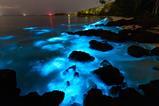

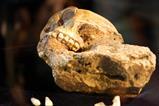
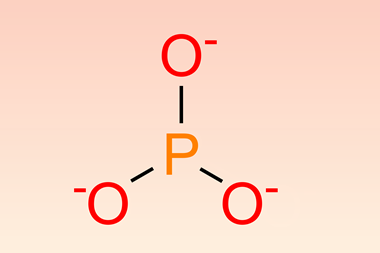
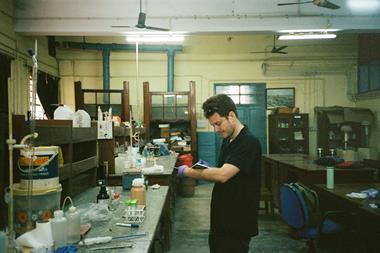
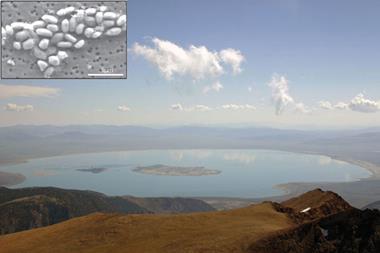







No comments yet